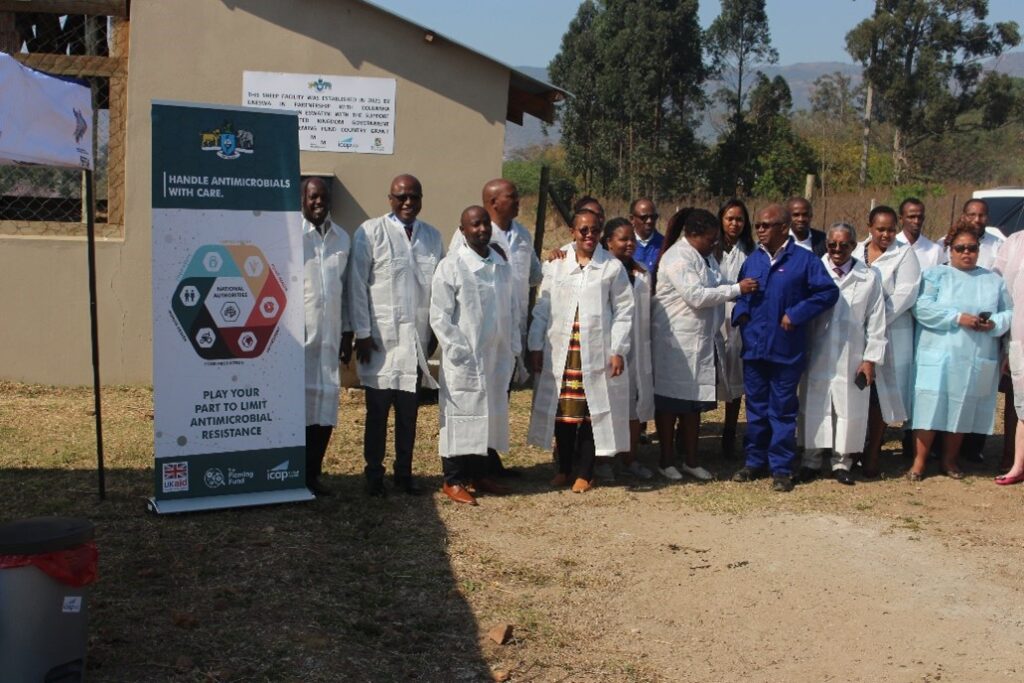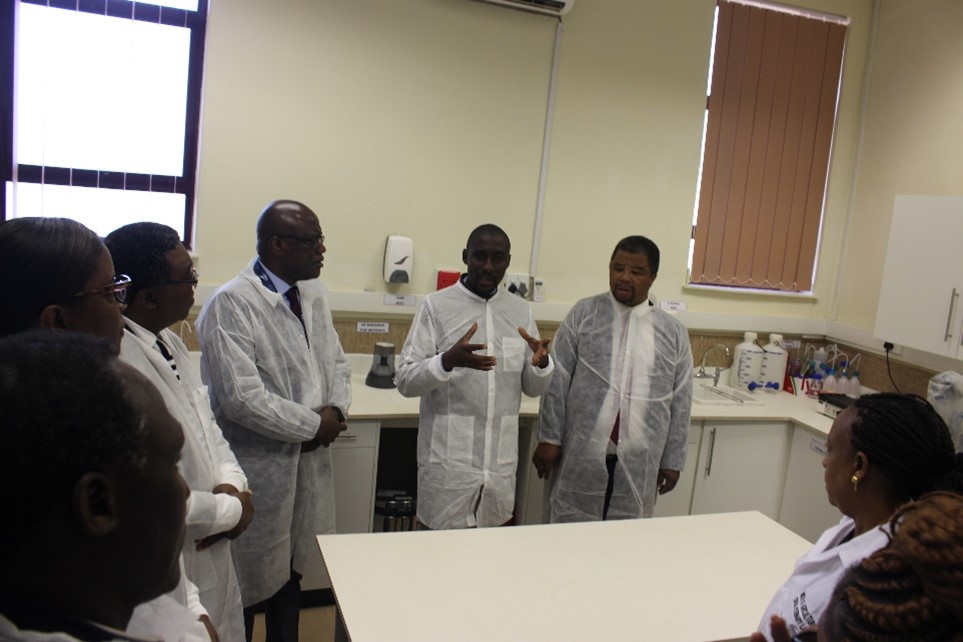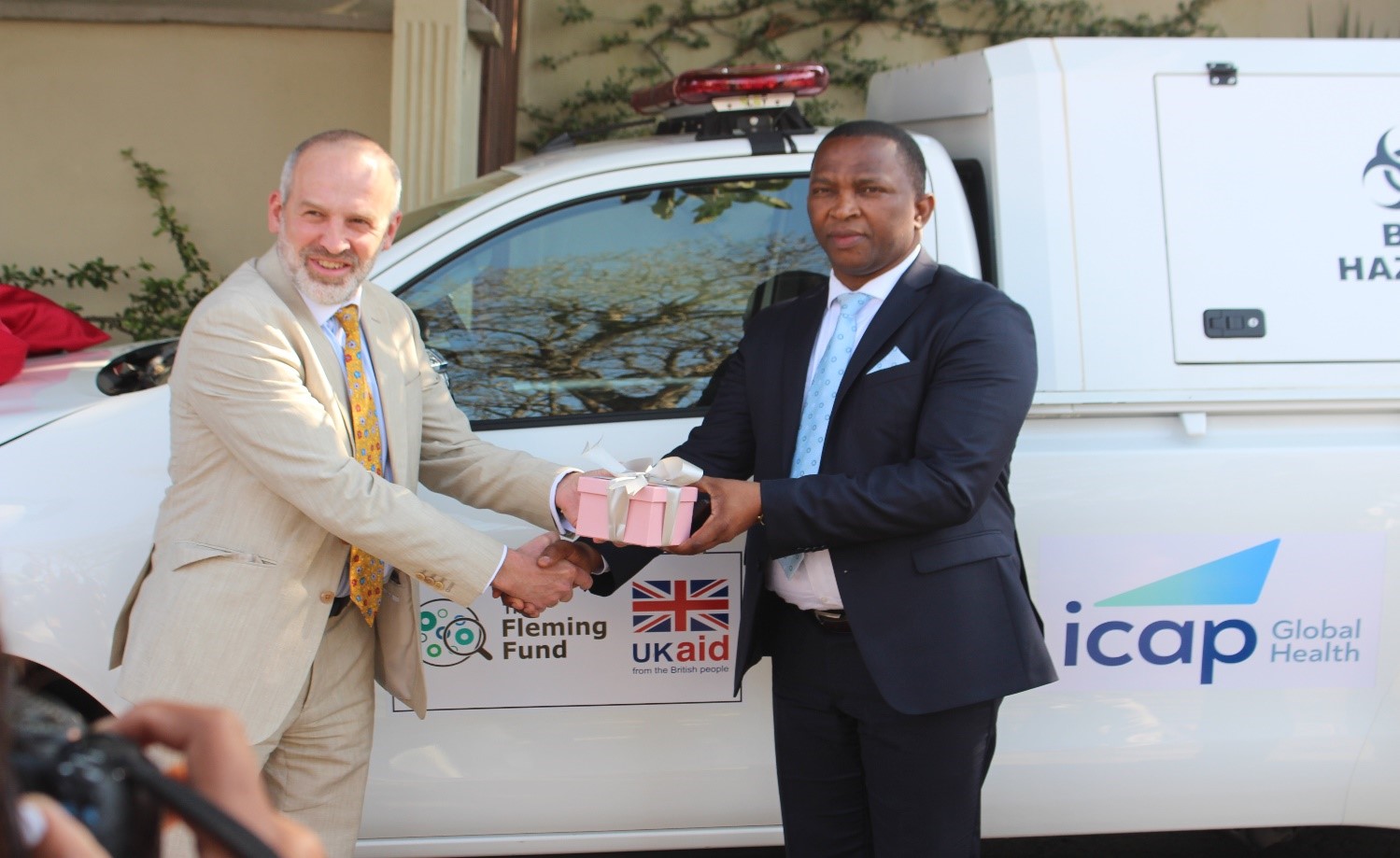On September 1, 2022, ICAP in Eswatini, in collaboration with the AMR Containment Committee (AMRCC) coordinated a visit by senior Government Officials from the Ministry of Health, Ministry of Natural Resources and Energy and Energy (MONRE), University of Eswatini (UNESWA) and the Ministry of Agriculture (MOA) to review progress ICAP has made in helping the country strengthen AMR surveillance activities under the Fleming Fund Country Grant Phase One.
The first stop was the Mbabane Bacteriology Laboratory at Mbabane Government Hospital, where visitors were able to view how renovation of the laboratory and new equipment have improved the workflow by helping to quickly identify the pathogens causing infections and to test their susceptibility to antibiotics so that clinicians know which antibiotics can work better for patient management.
“With the equipment support from the Fleming Fund Country Grant, the number of samples we can process has increased, and the susceptibility testing result turnaround time improved from seven days on average to 24 hours,” said one of the lab technologists. “You cannot imagine how this new equipment is making my life easy.”
Next on the agenda was the Sheep Blood Donation Centre at the Luyengo Campus of UNESWA. There, the visitors heard from Dr. Bernard N. Dlamini of the Faculty of Animal Husbandry who supervises a team of veterinary technicians that take care of the sheep and collect the sheep blood for the six AMR sentinel sites. The sheep blood is used for the preparation of special media necessary to grow bacteria in the bacteriological testing laboratories. Addressing visitors, Professor Abednego M. Dlamini highlighted that under the Fleming Fund Country Grant, ICAP also provided technical and financial support for constructing the sheep shed, procuring sheep and blood collection materials, and maintaining grazing land.

Prof Dlamini, (in blue coat) with the AMRCC and ICAP project team after touring the Sheep Blood Donation Center
The tour continued at the Central Veterinary Laboratory (CVL) and Food and Hygiene Laboratory (FHL) in Manzini, where Dr. Patrick Dlamini, the acting director of Veterinary Services, and the heads of the two MOA sentinel sites—Dr. Fantu Kelelele and Dr. Courage Mudyanavana—provided an overview of the support of capacity-building efforts of the CVL and FHL to support AMR surveillance. Meanwhile, MOA’s principal secretary, Sydney Simelane, urged staff to leverage the Fleming Fund support to strengthen the contribution of the MOA to AMR surveillance in the country.

Dr. Courage Mudyanavana, the Head of FHL responding to questions from the visiting team
A dramatic flourish capped the day as Simon Boyden, the British high commissioner, handed over the keys for a sample transportation car to Senator Jabulani Mabuza, the minister of Agriculture, as the principal secretaries from the MOH, MONRE, and MOA observed. Before the handover, the AMRCC shared the antimicrobial resistance, use and consumption data with stakeholders and emphasized the importance of using the collected data to guide clinicians in their prescribing practices
About ICAP
A major global health organization that has been improving public health in countries around the world for nearly two decades, ICAP works to transform the health of populations through innovation, science, and global collaboration. Based at Columbia Mailman School of Public Health, ICAP has projects in nearly 40 countries, working side-by-side with ministries of health and local governmental, non-governmental, academic, and community partners to confront some of the world’s greatest health challenges. Through evidence-informed programs, meaningful research, tailored technical assistance, effective training and education programs, and rigorous surveillance to measure and evaluate the impact of public health interventions, ICAP aims to realize a global vision of healthy people, empowered communities, and thriving societies.








